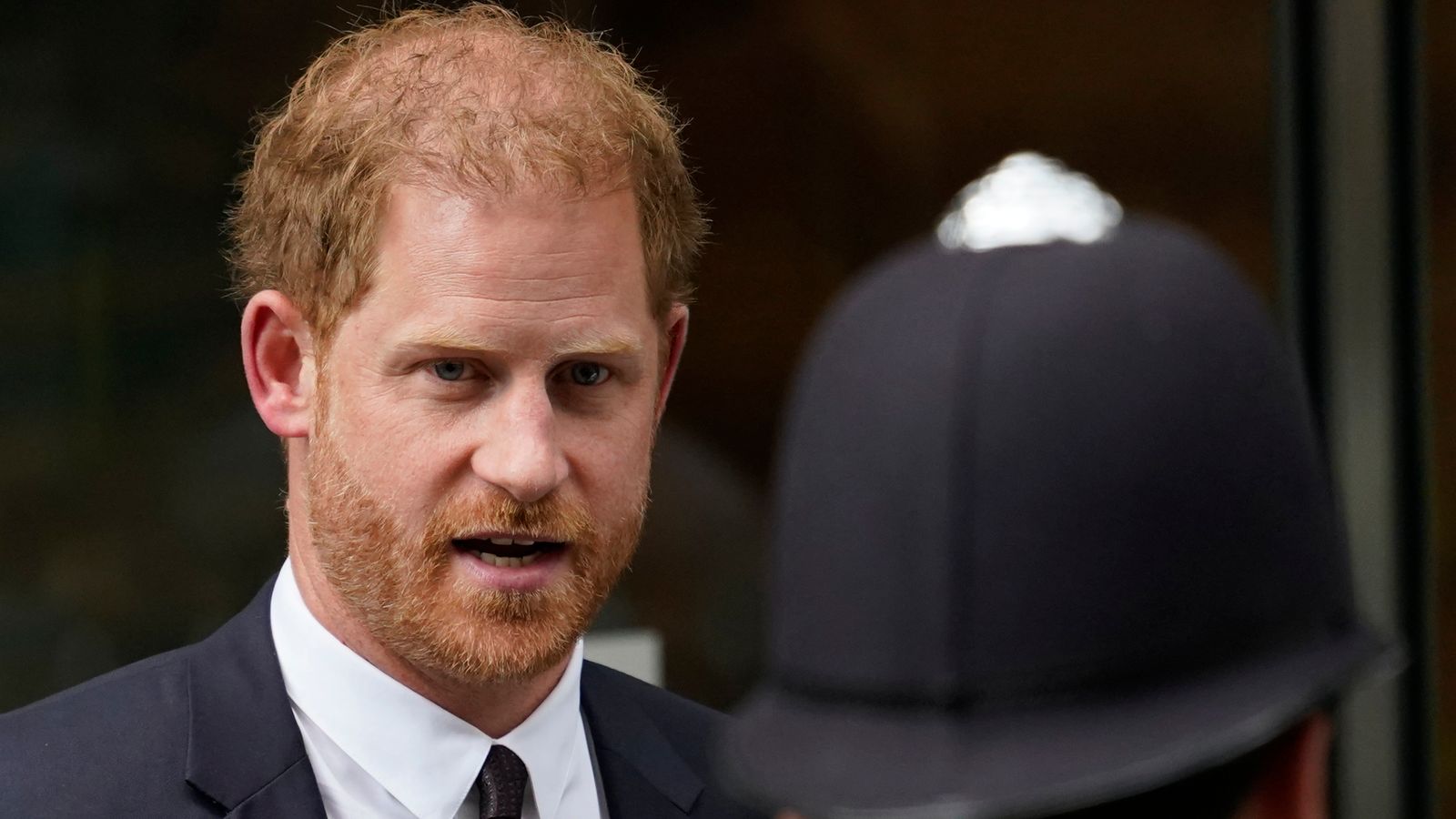In a significant legal victory, a London court ruled in favour of Prince Harry on Friday in his lawsuit against a British tabloid publisher, marking a pivotal moment in his ongoing battle with the UK news media over its intrusive coverage of his life.
Judge Timothy Fancourt found ample evidence that Mirror Group Newspapers, the owner of several publications, had engaged in unlawful information gathering, including phone hacking, in its reporting on Prince Harry. The ruling stated that out of the 33 articles presented as evidence of phone hacking by Harry’s legal team, information in 15 of them had been unlawfully obtained by journalists. The judge awarded the royal approximately £140,600 (around $180,000) in damages, noting that Prince Harry’s phone appeared to have been targeted between 2004 and 2009.
This civil lawsuit is part of a series of legal actions initiated by Prince Harry and his wife, Meghan, against the British tabloid news media, addressing concerns related to privacy rights.
The judgment, the first among three ongoing lawsuits involving Prince Harry in the British courts, provides a measure of vindication for the royal in his campaign against media intrusion. Prince Harry, 39, had claimed that journalists from The Mirror, The Sunday Mirror, and The Sunday People tabloids had targeted him and his inner circle by accessing his voicemail messages and employing other unlawful methods over an extended period, causing significant distress. The majority of the incidents outlined in the case occurred from 1991 to 2011, a time when Prince Harry held the third position in the line of succession to the British throne, following his father and elder brother, William.
During the legal proceedings, Prince Harry provided over seven hours of testimony in a London courtroom in June, marking the first instance of a senior member of the British royal family taking the stand since the 19th century. His lawyer submitted 147 newspaper articles as evidence, with dozens subjected to forensic examination during the hearings.
In his testimony, Prince Harry expressed how the negative narratives prominently featured on the front pages of newspapers had eroded his trust in even his closest friends. In his written statement, he asserted that editors and journalists bore responsibility, stating they had “blood on their hands” due to the methods employed and the extremes to which they went to cover stories about him and his family. The tragic death of his mother, Princess Diana, in a car crash in 1997, pursued by photographers in Paris, added to the emotional weight of the situation.
Throughout his extensive testimony, Prince Harry delved into Mirror Group articles that spanned his life, some dating back to his elementary school years, disclosing distressing or damaging personal details. One such article revealed information about him breaking his thumb at school, leaving him bewildered about how such details could be known, suggesting the possibility of his doctor’s phone being hacked.
Numerous stories focused on Prince Harry’s relationship with Chelsy Davy, a former girlfriend he began dating after leaving school. He disclosed a particularly alarming incident where they discovered a tracking device on her car.
Notably, the cross-examination of Prince Harry did not yield concrete evidence of phone hacking. This became a pivotal issue for the judge, who had to determine whether highly detailed stories about Prince Harry’s private life constituted sufficient proof that the Mirror Group tabloids had resorted to illegal methods to obtain information about him.
Andrew Green, a lawyer representing the Mirror Group, pressed Prince Harry for solid evidence of phone hacking, arguing that much of the information claimed to be unlawfully obtained was available from other sources, including royal family press officers.
In late July, a judge in Britain ruled that only a portion of another lawsuit filed by Prince Harry against Rupert Murdoch’s tabloids would proceed to trial in January.



